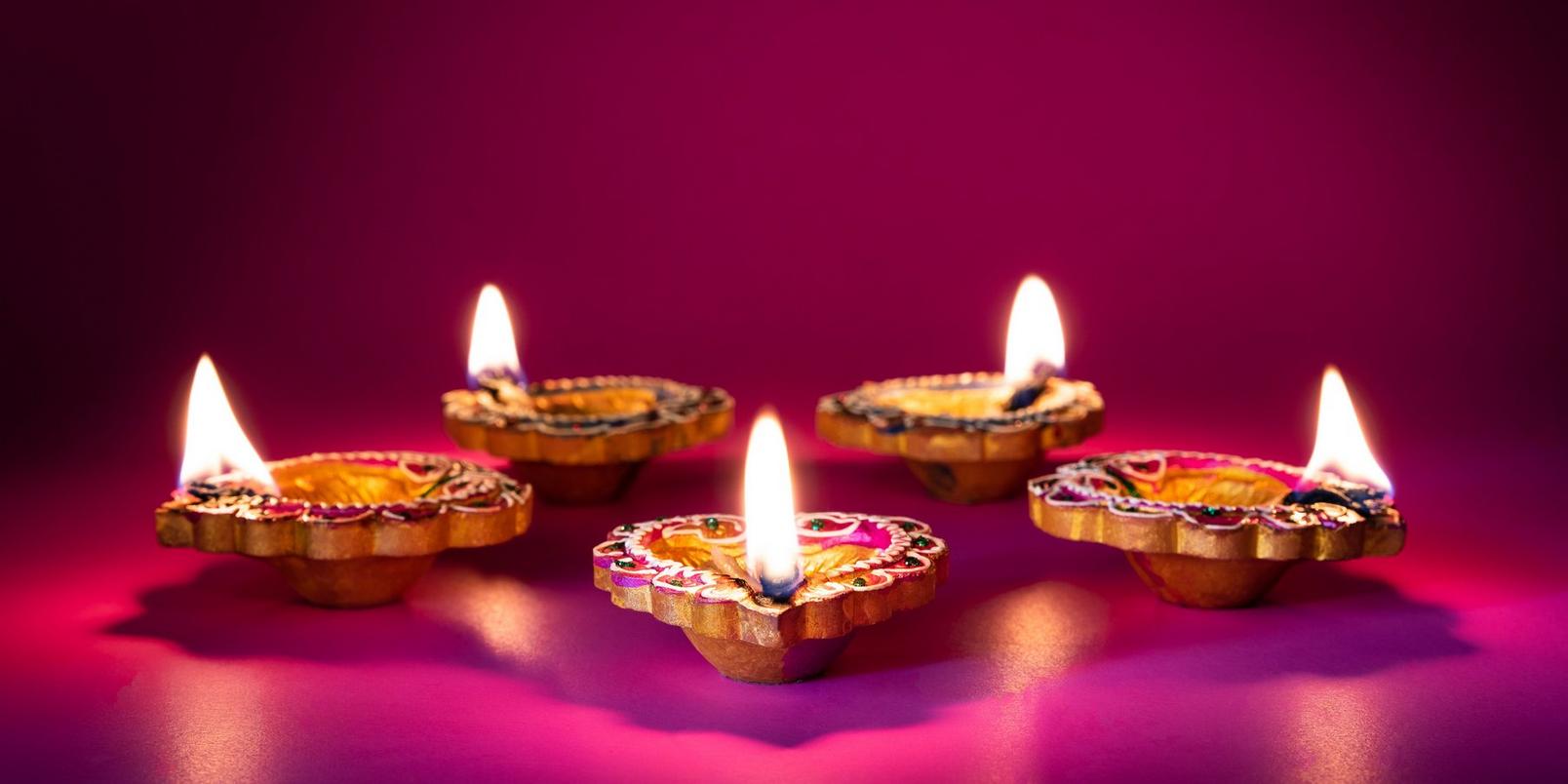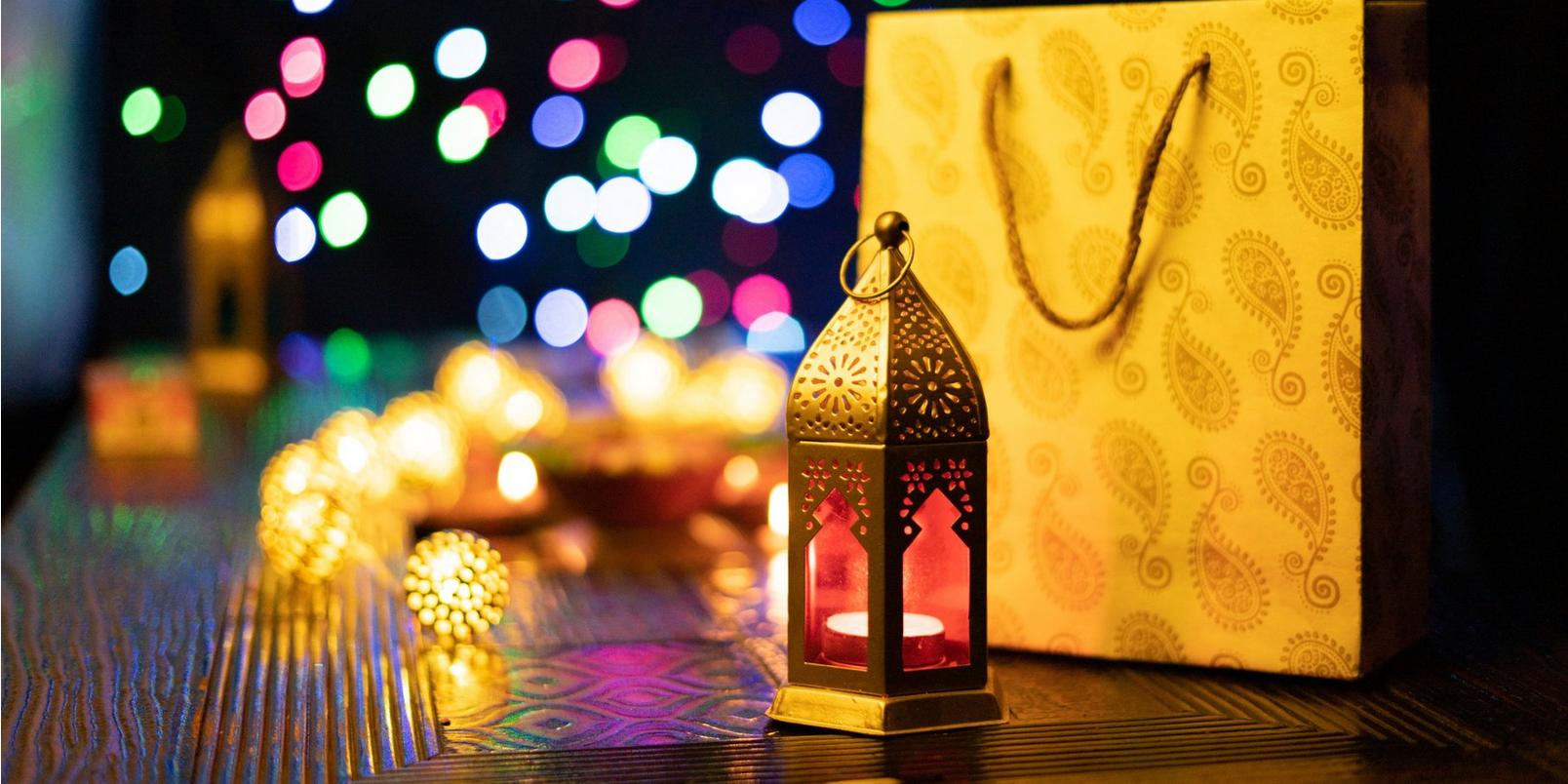Diwali Traditions
Although celebrations for Diwali differ from region to region (just as the legends do) the common theme that runs throughout is the tradition of gathering together with loved ones, eating food and using light to protect the home from spiritual darkness.
Diwali is celebrated over a five-day period and traditionally the first day is spent cleaning the home, and baking sweets. The next day is all about decorating often with candles, flowers and creating the decorative rangoli. Diya, an oil lamp made from clay or mud, are lit in every corner of the home to weaken the darkness.
Festivities reach their peak on the third day of Diwali which is also the Hindu New Year. Families and friends will dress up in their finest clothes, visit temples for prayers and to seek blessings before gathering for a celebratory feast and watching fireworks. Windows will be opened and Diya left on all night to welcome in the goddess Lakshmi.
The fourth day is a chance to visit friends and family and traditionally exchange gifts. The final day is dedicated to the brothers in the family when sisters will cook for them.



